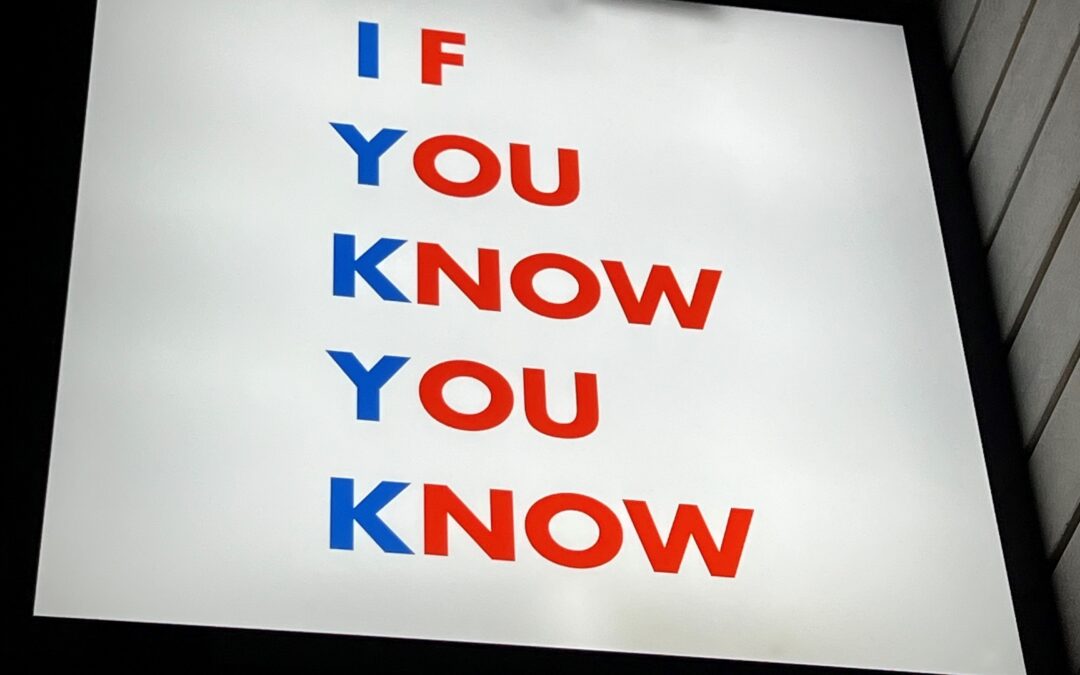There are many grooves worn into my own brain, and likely yours too. Some good, some bad. All the grooves are worth being aware of though – for instance, I take stairs (whenever I can) and I take them two at a time… 99% of the time. And when I don’t, when I walk up a flight one step at a time, that’s a sign that something is off with me.
A groove can be like a habit; we see a thing – stairs – we approach it (them) the same way that worked last time, or the last 10,000 times. However, some grooves become needlessly deep, so deep that when we attempt to think or act in a new way, we stumble and fall back into the old way instantly, derailing new thoughts or actions.
Ask anyone who’s tried to quit smoking; many have a story about finishing a cigarette, days into their attempt to quit, with no recollection of the ten minutes they spent on autopilot lighting up through to the last drag.
My ‘quit’ was dairy, several years ago, but I recall one incident quite clearly; A few weeks into my ‘dairy-free’ life, my kids looked at me sitting on the couch, watching TV, and asked what was up with the bowl of ice cream in my hands. I shrugged and asked what they meant. Ahhhhh, oh ya… ice cream is made of milk!!!
But the habit was strong; the groove associating “House of Cards” with Salted Caramel ice cream was so deep it didn’t even register that I was ingesting a stack of lactose. Oops.
Fast forward 7 years:
- My home contains no ice cream, not even the truly epic “So Delicious Salted Caramel’ cashew ice cream
- My home contains no TV
- Netflix… cancelled
I’m missing out, I know. But there are positive grooves and there are negative grooves. The ice-cream/TV/Netflix groove was not serving me. It all had to change.
How do we change?
How to we realign the grooves?
Here are some simple ideas for you.
When we repeatedly tell the same stories, we forge neural pathways in our brains. These pathways influence how we feel about the people in our stories, how we view the nature of events, or the topic in general. These stories shape our perception of the world around us and the people in it, for better or worse.
On the other hand, if we can release, rather than repeat, the negative experiences of our day – skip repeating the bad news stories, we just might positively impact our own thinking and that of those around us.
For instance, here’s a story I wrote about in 2018 and then never told anyone again. I never spoke of it.
I woke up at 4:45 am – an hour and 15 minutes earlier than usual – to prepare for an important call. Just minutes before the scheduled time, I received an email cancelling the call. My first reaction was annoyance; I was tempted to detail my efforts to accommodate the call that this person had asked me for. They wanted information from me, and I was up, en route to the office, standing outside the Starbucks just a few blocks from my office… I was less than impressed.
But pausing, I realized I really didn’t know what was happening in that person’s life. And they deserved the benefit of the doubt.
However, the real question is: Why recount this story now, or ever?
Shortly after the initial reaction, I composed myself and responded with positive energy. I took the frustration and repurposed it into tackling my inbox more effectively. I made excellent use of the unexpected free time. It was a win.
And I never shared the story, not that day as people showed up wondering why I was already in the office so early, not that evening when I got home a bit more worn out. I chose to skip dwelling on the negative aspects and I skipped inviting others into my negative story.
A few weeks later, a combination of morning light and the same parking spot at the same Starbucks briefly reminded me of the missed call once more – but not of the person involved… I genuinely could not recall who it was that left me hanging that morning.
Not holding a grudge is a wonderful thing.
When faced with negative experiences or emotions, consider these steps:
- Forgive Instantly: Truly forgive the person without requiring an explanation. We can never know the complete story of someone else’s life, and we may not want the weight of their story.
- Maximize the newfound time: Prioritize a task that requires attention; you know you have a few.
- Maximize Productivity: Use any unexpected free time effectively; focus on the win.
- Avoid Rehashing: Don’t repeat or share a negative story. Let it go. The world will seem like a better place – truly.
Retelling negative stories won’t offer relief; not really. In fact, it’s more likely to amplify your state of distress as your brain experiences the negative emotions over and over again with each retelling.
This will slow down your productivity.
Instead embrace a positive narrative and actively shape a brighter version of the future, and in a way a brighter past. There are few benefits to living in the past, ro to living to far into the future.
It’s essential to remember that everyone around us is experiencing some level of personal challenge. We’re all under pressure, you, me, the barista and the Uber driver – wouldn’t you appreciate a break when you drop the ball?
Let the negative go.
Channel your energy into constructive action, make life easier for others and, in turn, this will enrich your own life… in all the ways!
Be Better!
DW

Love this! A great reminder to be better!